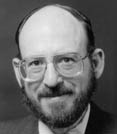What About My Health?
April 5th
By Arthur L. Frank, PhD, MD
| Rare diseases are often difficult to diagnose. In addition, treatment information can be difficult to find and experts with experience treating such diseases are typically rare. Various treatment options exist for asbestos-related diseases, patients respond differently to treatments, and personal preferences should also be taken into account. The information available can be extensive, but some basic guidelines may assist patients in their search for health help. Friends can be a great resource to find online resources, connect you with others with the same diagnosis, or help vet doctors and treatment facilities. You may want to consider asking questions like, “What would you have done differently given the choice?” Armed with these resources, you and your family will be able to make better decisions based on your personal situation. Remember, don’t be afraid to ask for help.
|
Finding an Expert and Getting a Second Opinion
Various types of doctors treat asbestos-related diseases from oncologists to radiologists to surgeons. In locating an expert, do some online research and seek the opinions of true experts, someone who has experience treating many patients, not just one prior patient. Seek the opinion of a doctor in his or her specialty. Oncologists can give information on chemotherapy, but may not be best qualified to discuss surgical options. Conversely, surgeons may not be able to discuss the latest chemotherapy treatments. Some doctors have cross-disciplinary titles such as surgical-oncologists, who can comment on surgery and chemotherapy treatments. So keep in mind your doctor’s field of experience and how that relates to the treatment advice. When in doubt, seek a second opinion, but don’t become overwhelmed with seeking five or six opinions. Gather an appropriate amount of information and act.
Finding a Treatment Facility for Patients Living in the United States
Choosing a treatment facility is another important consideration for getting the best medical care possible. Although you may not be able to choose which hospital treats you in an emergency, you can choose a facility for scheduled and ongoing care. If you have already found a doctor for your cancer treatment, you may need to choose a facility based on where your doctor practices. Your doctor may be able to recommend a facility that provides quality care to meet your needs. You may wish to ask the following questions when considering a treatment facility:
Has the facility had experience and success in treating my condition?
Has the facility been rated by state, consumer, or other groups for its quality of care?
How does the facility check on and work to improve its quality of care?
Has the facility been approved by a nationally recognized accrediting body, such as the American College of Surgeons (ACS) Commission on Cancer and/or The Joint Commission?
Does the facility explain patients’ rights and responsibilities? Are copies of this information available to patients?
Does the treatment facility offer support services, such as social workers and resources, to help me find financial assistance if I need it?
Is the facility conveniently located?
Recommended Reading from NCI: www.cancer.gov/cancertopics/factsheet/Therapy/doctor-facility
http://cancercenters.cancer.gov/cancer_centers/cancer-centers-list.html
Additional Resources
Agency for Toxic Substances & Disease Registry (ATSDR)
Case Studies in Environmental Medicine (CSEM)
Asbestos Toxicity: What Respiratory Conditions Are Associated with Asbestos?
www.atsdr.cdc.gov/csem/asbestos/respiratory_changes2.html
National Cancer Institute (NCI)
www.cancer.gov/cancertopics/types/malignantmesothelioma
www.cancer.gov/cancertopics/pdq/treatment/malignantmesothelioma/healthprofessional
International Mesothelioma Interest Group (IMIG)
The largest organization of mesothelioma expert healthcare professionals: www.imig.org/
The Mesothelioma Applied Research Foundation (MARF)
www.curemeso.org
Association of Cancer Online Resources, Inc. (ACOR) Mesothelioma list serve:
The ACOR lists are a group of free, unmediated discussion lists for patients, family, friends, researchers, and physicians, to discuss clinical and non-clinical issues and advances pertaining to all forms of cancer. This includes information about patient experiences, psychosocial issues, new research, clinical trials, and discussions of current treatment practices as well as alternative treatments.
http://www.acor.org/
Cancer Monthly
Cancer Monthly is the only centralized source of the survival rates and side-effects of hundreds of the latest cancer treatments. It also provides access to cancer news, clinical trials, a cancer encyclopedia, the largest cancer community on the internet, a comprehensive cancer glossary, reports on alternative and integrative approaches, and much more!
http://cancermonthly.com
http://www.cancermonthly.com/cancer_basics/mesothelioma.asp
Asbestos Awareness Week Contributors:
April 1st Linda Reinstein, President/CEO, Asbestos Disease Awareness Organization (ADAO)
April 3rd Ken Cook, President, Environmental Working Group (EWG)
April 6th Paul Zygielbaum, ADAO Product Testing Manager and Laurie Kazan-Allen, IBAS

 *Arthur L. Frank, PhD, MD is co-chair of ADAO’s Science Advisory Board. He is Professor of Public Health and Chair of the Department of Environmental and Occupational Health at the Drexel University School of Public Health in Philadelphia.
*Arthur L. Frank, PhD, MD is co-chair of ADAO’s Science Advisory Board. He is Professor of Public Health and Chair of the Department of Environmental and Occupational Health at the Drexel University School of Public Health in Philadelphia.